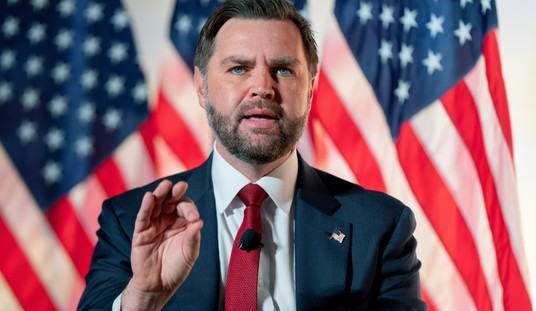Over the past two years, a policy battle of enormous significance for the future of health care and liberty in the United States has played out in state legislatures and governor’s mansions across the country. The question: whether states will bow to President Obama’s wishes and implement his versions of health insurance exchanges – rife with bureaucratic regulations, delivery mechanisms for the whims of Kathleen Sebelius, and, of course, subsidized heavily by you the taxpayer – or whether they will resist, refusing to waste taxpayer dollars, holding out for the day when Obamacare is no more.
On one side of this battle is a small band of dedicated activists and think tank policy wonks from conservative and libertarian organizations. On the other side is the White House, the bulk of industry, most insurers, and former Bush HHS Secretary Michael Leavitt – the man who, according to Politico, is likely to become Mitt Romney’s chief of staff. He’s lobbied across the country for states to implement Obamacare exchanges, while his consultancy, Leavitt Partners, has reaped the financial benefits:
Leavitt has said some relatively positive things about certain elements of Obama’s health reform law, suggesting earlier this year that “Obamacare” empowers the HHS secretary “to do certain things that are clearly aimed at trying to move us in the right direction.”
McKeown, who still works with Leavitt at his Utah-based health care consultancy, acknowledged that the former governor does not want to undo one key part of the controversial legislation.
“We believe that the exchanges are the solution to small business insurance market and that’s gotten us sideways with some conservatives,” he said.
The exchanges are not only a matter of principle for Leavitt — they’re also a cash cow. The size of his firm, Leavitt Partners, doubled in the year after the bill was signed as they won contracts to help states set up the exchanges funded by the legislation.
Leavitt’s status as one of the few Republicans supporting Obamacare implementation has been a matter of significant concern for those on the right, as he and his consultancy represent the most prominent figures in the party urging states to bow to Washington’s wishes in this regard. I wrote about his work here, but here are a few examples:
- Last year he spoke to the National Governors Association, urging “the governors not defend their ‘partisan flags’ over the interests of their states.”
- A month later, Leavitt wrote: “I’m surprised that many states are waiting for the political stars to align and produce repeal or a major revision. Some are doing little of substance, hoping that the federal government will relax the calendar. Both approaches are a mistake. Smart states will proceed to develop exchanges based on a strategy of self-determination and the benefits that come from enhancing insurance offerings within their states.”
- It’s little surprise Leavitt and his staff decried the conservatives arguing against implementation. “In recent weeks health insurance exchanges have become the target of those who oppose Obamacare. This is very unfortunate as exchanges make sense for a number of reasons and exchanges should not be used as a scapegoat to defeat Obamacare… Regardless of your opinion of Obamacare, exchanges just make sense.”
- They suggested that “Resistance to exchange establishment also seems to come from a general aversion to change.” They scoffed at the policy wonks: “When you work at a think-tank, it’s really easy to come up with these really high-risk plans.”
On the day Obamacare was passed, Leavitt Partners weighed in: “There are tremendous opportunities for innovators in the market to shape how the massive legislation is implemented.” And they set about doing so, building a team to profit from the hundreds of millions of taxpayer dollars in grants sent to states to set up these exchanges. It’s a living – but the fact that Leavitt and his allies failed to note their financial stake in implementation in any of the aforementioned speeches or columns was a tendency which attracted the criticism of many in the health policy space.
Thankfully, most Republican legislatures and governors have rejected Leavitt’s approach outright. Today, there is little question that opponents of Obamacare exchange implementation have won the battle. But it is concerning that this was a battle won over the heavy opposition of someone who may end up determining Obamacare’s replacement.
For Mitt Romney’s part, his campaign reiterated his commitment to repealing the health care law when reached for comment. But this isn’t about repeal. It’s about what comes next.












Join the conversation as a VIP Member